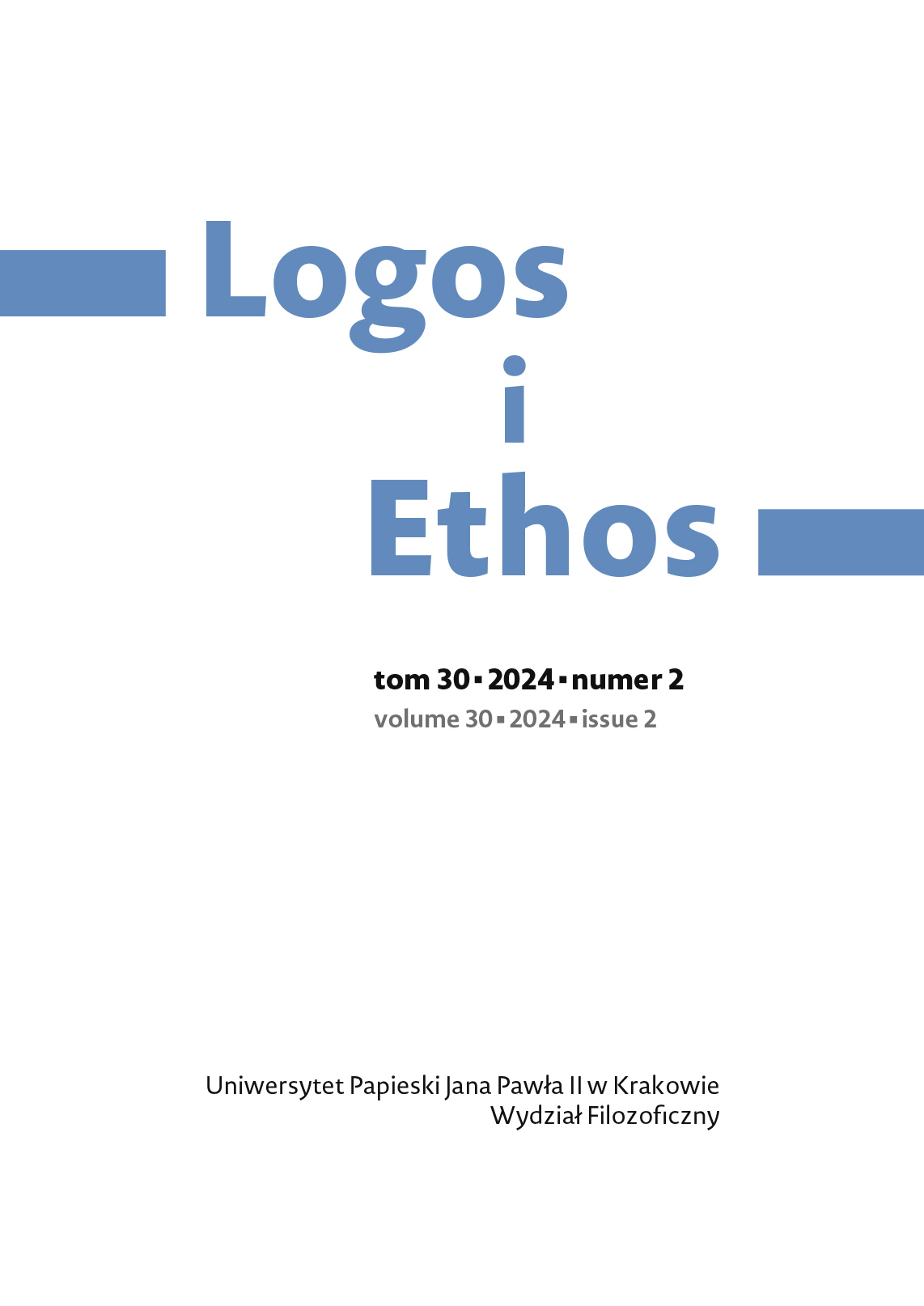Ojkofobia, postmodernizm i konserwatyzm wobec zmian kulturowych i religijnych. Kilka refleksji w oparciu o myśl Rogera Scrutona
DOI:
https://doi.org/10.15633/lie.30202Słowa kluczowe:
Roger Scruton, postmodernizm, ojkofobia, konserwatyzmAbstrakt
Poszukiwania wszelkich nowych rozwiązań w życiu indywidualnym, społecznym, a nawet religijnym stanowią dziś niezwykle częste zjawiska. W sposób oczywisty rodzą się zatem nowe sposoby myślenia i postawy z nich wypływające, dotyczące każdej dziedziny naszego życia. Na szczególną uwagę powinny zasługiwać te z nich, które pod pozorem naturalnie zmieniającego się świata próbują administracyjnie i autorytarnie kruszyć zastane schematy myślenia i działania osób oraz narodów, a które klasycznie można określić mianem konserwatywnych. Zarówno pojawienie się tez postmodernistycznych, jak i postawy ojkofobiczne (termin utworzony przez brytyjskiego filozofa Rogera Scrutona) należy zaliczyć do tych typów myślenia i działania, które próbują odgórnie zmieniać rzeczywistość. Jednak, jak wynika, między innymi z ewolucyjnie pojmowanej myśli konserwatywnej, wszelkie zmiany wprowadzane w taki sposób nie przyczyniają się do prawdziwego postępu jednostek i narodów. Pojawia się za to chaos i niezrozumienie. Analizy porównawcze przeprowadzone w niniejszym artykule próbują ukazać niektóre niepokonywalne różnice pomiędzy złudnym pragnieniem szybkich i dogłębnych zmian a prawdziwym, czyli ewolucyjnym rozwojem. Wskazują także na, często dziś zapominane, obiektywne i trwałe fundamenty naszego życia osobistego, społecznego, narodowego oraz religijnego.
Bibliografia
Arystoteles, Fizyka, przeł. K. Leśniak, w: Arystoteles, Dzieła wszystkie, t. 2: Fizyka. O niebie. O powstawaniu i niszczeniu. Meteorologika. O świecie. Metafizyka, Warszawa 2003, s. 7–203.
Arystoteles, Kategorie, w: Arystoteles, Kategorie. Hermeneutyka. Z dodaniem Isagogi Porfiriusza, przeł. K. Leśniak, Warszawa 1975, s. 3–50.
Arystoteles, Metafizyka, przeł. K. Leśniak, w: Arystoteles, Dzieła wszystkie, t. 2: Fizyka. O niebie. O powstawaniu i niszczeniu. Meteorologika. O świecie. Metafizyka, Warszawa 2003, s. 601–857.
Arystoteles, Poetyka, przeł. H. Podbielski, w: Arystoteles, Dzieła wszystkie, t. 6: Polityka. Ekonomika. Retoryka. Retoryka dla Aleksandra. Poetyka. Zachęta do fiolozofii. Ustrój polityczny Aten. List do Aleksandra Wielkiego. Testament, Warszawa 2001, s. 563–626.
Baudrillard J., The Gulf War did not take place, trans. & intro. P. Patton, Bloomington 1995.
Baudrillard J., The illusion of the end, trans. C. Turner, Cambridge 1994.
Bauman Z., Etyka ponowoczesna, przeł. J. Bauman, J. Tokarska-Bakir, Warszawa 2012.
Brzechczyn K., Patriotyzm — nacjonalizm — ojkofobia w myśli Rogera Scrutona, „Przegląd Filozoficzny — Nowa Seria” 29 (2020) nr 1, s. 51–62, https://doi.org/10.24425/pfns.2020.132970.
Brzechczyn K., W obronie metanarracji w filozofii historii, w: Całość — wizje, pejzaże, teorie, red. P. Orlik, Poznań 2006, s. 231–241.
Burke E., Rozważania o rewolucji we Francji, przeł. D. Lachowska, Kraków–Warszawa 1994.
Day B., The velvet philosophers, London 1999.
Derrida J., O gramatologii, przeł. B. Banasiak, Łódź 2011.
Duk A., O wątpliwych podstawach i metodologii humanistów postmodernistycznych, „Analecta Cracoviensia” 52 (2020), s. 7–28, https://doi.org/10.15633/acr.4043.
Hamilton A., Conservatism, https://plato.stanford.edu/entries/conservatism/ (29.10.2019).
Hańderek J., Kłopoty z tożsamością — kłopoty ze współczesnością, „Kwartalnik Filozoficzny” 44 (2016) z. 2, s. 5–28.
Heller M., Brotti G., Bóg i nauka. Moje dwie drogi do jednego celu, Kraków 2022.
Hörcher F., Farewell to Roger Scruton — the classic of contemporary British conservatism, „Hungarian Review” 11 (2020) no. 1. http://hungarianreview.hu/article/20200121_farewell_to_roger_scruton_the_classic_of_contemporary_british_conservatism
Information from 2016 Events, https://www.roger-scruton.com/ (23.07.2024).
Jędraszewski M., Filozofia czasu, w: Pojęcie czasu w nauce, sztuce i religii, red. A. Wójtowicz, Poznań 2001, s. 9–32.
Kaucha K., Czy może być co dobrego w postmodernizmie?, „Biblioteka Teologii Fundamentalnej” 8 (2013), s. 73–86.
Kiereś H., Mit, http://www.ptta.pl/pef/pdf/m/mit.pdf, s. 1–6 (29.05.2024).
Kiereś H., Postmodernizm, http://www.ptta.pl/pef/pdf/p/postmodernizm.pdf (22.03.2023).
Kristeva J., Au commencement était l’amour. Psychanalyse et foi, Paris 1985.
Kristeva J., Vanier J., (Bez)sens słabości: dialog wiary z niewiarą o wykluczeniu, przeł. K. i P. Wierzchosławscy, Poznań 2012.
Lengauer W., Religijność starożytnych Greków, Warszawa 1994.
Lengauer W., Starożytna Grecja okresu archaicznego i klasycznego, Warszawa 1999.
Lyotard J.-F., Kondycja ponowoczesna: raport o stanie wiedzy, przeł. M. Kowalska, J. Migasiński, Warszawa 1997.
Lyotard J.-F., Thébaud J.-L., Just gaming, University of Minnesota Press 1985 (Theory and History of Literature, 20).
Markiewka T. S., Bruno Latour i „koniec” postmodernizmu, „Diametros” (2012) nr 33, s. 101–119.
Miś A., Filozofia współczesna: główne nurty, Warszawa 2006.
Platon, Państwo, w: Platon, Państwo. Prawa, przeł. W. Witwicki, Kęty 2001, s. 13–338.
Scruton R., England and the need for nations, London 2006.
Scruton R., Jak być konserwatystą, przeł. T. Bieroń, Poznań 2016.
Scruton R., Oikofobia i ksenofilia, przeł. A. Depowska, w: Narody i stereotypy, red. T. Walas, Kraków 1995, s. 291–297.
Scruton R., Zachód i cała reszta. Globalizacja a zagrożenie terrorystyczne, przeł. T. Bieroń, Poznań 2003.
Scruton R., Zielona filozofia. Jak poważnie myśleć o naszej planecie, przeł. J. Grzegorczyk, R. P. Wierzchosławski, Poznań 2017.
Sokal A., Bricmont J., Modne bzdury: o nadużywaniu pojęć z zakresu nauk ścisłych przez postmodernistycznych intelektualistów, przeł. P. Amsterdamski, Warszawa 2004.
Pobrania
Opublikowane
Numer
Dział
Licencja

Utwór dostępny jest na licencji Creative Commons Uznanie autorstwa 4.0 Międzynarodowe.
Autorzy publikujący w czasopiśmie udzielają jego wydawcy zgody o następującej treści:
- Autor zachowuje autorskie prawa majątkowe do utworu, a jednocześnie udziela wydawcy czasopisma zgody na jego pierwszą publikację w wersji drukowanej i wersji online na licencji Creative Commons Uznanie autorstwa 4.0 Międzynarodowe oraz zgody na wykonywanie opracowań, w tym przekładów.
- Autor ma możliwość udzielania zgody niewyłącznej na opublikowanie utworu w wersji, która ukazała się w czasopiśmie (np. zamieszczenia go w repozytorium instytucjonalnym lub opublikowania w książce), wraz z informacją o jego pierwszej publikacji w czasopiśmie.
- Autor może umieścić swój utwór online (np. w repozytorium instytucjonalnym lub na swojej stronie internetowej) jeszcze przed zgłoszeniem utworu do czasopisma.

